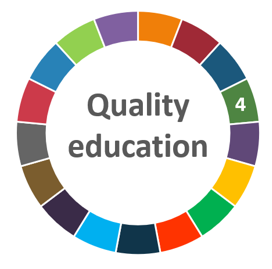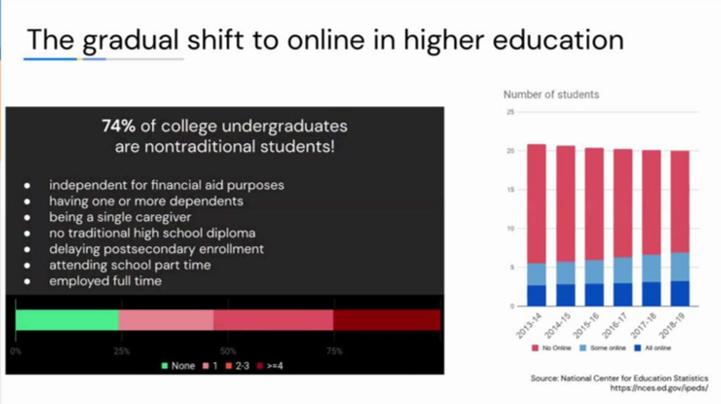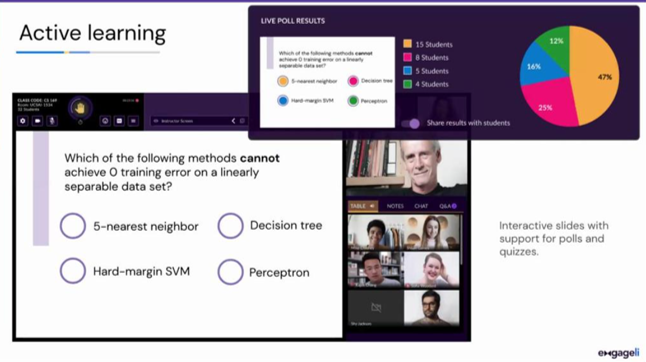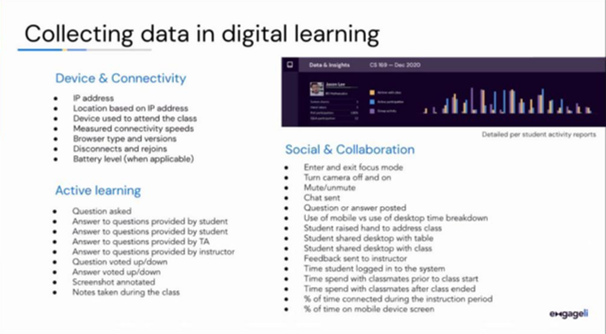
ΑΙhub.org
Daphne Koller: Digital learning coming to life – #AAAI2021 invited talk

At AAAI 2021, Daphne Koller gave a plenary talk about digital learning. In this presentation she discussed the different motivations for online learning, what we know about effective learning, digital platforms, and using data to improve learning.

The COVID pandemic has necessitated a transition online for many of our activities, with one of the more significant of these being education. Many academic institutions were unprepared for this transition and, in general, this led to a decline in student satisfaction and achievement. In her talk, Daphne argued that this challenge also presents an unprecedented opportunity to transform the way teaching is delivered.
Balancing increased access and increased engagement
Pre-pandemic, we were seeing a gradual shift towards online learning. In the USA this was partly driven by the fact that the majority of college undergraduates have additional responsibilities to contend with alongside their studies, and having some flexibility in a schedule is desirable. Although online learning can significantly increase access to education, it typically does not have the same level of engagement as face-to-face teaching. This is the main challenge in this space: increasing access without sacrificing student engagement.

Daphne also spoke about MOOCs (massive open online courses) and popularity of the AI and machine learning courses offered through Coursera. Since the early days, in 2012, the number of MOOCs on offer has increased rapidly. When people complete a MOOC it is likely to have benefits for their career. However, the completion rate is very low (around 5%).
Research shows that a hybrid approach, where the online format is combined with a small number of meetings with an instructor, can be as effective as a traditionally taught course. It is these hybrid approaches that could unlock the potential of online learning.
How to learn effectively
Daphne identified three key elements that are needed for learning to be effective. Learning should be: active, interactive and collaborative.
She went on to give some examples of how to incorporate these into online learning. The digital format allows for active learning features to be introduced to a lesson quite easily. For instance, by adding polls and quizzes for students to participate in. These provide a quick way informing the teacher how many students have understood the concepts they are trying to convey. This cannot be done so easily in a physical classroom. There is also software for note-taking and annotation that enables students to capture screenshots and add their own notes, and to pull up the relevant section of the video lecture at a later date with a simple click.

Daphne believes that some of the greatest educational benefits come from collaborative learning. Most classrooms on a University campus are auditoriums, and these do not facilitate collaborative learning. One way to enable collaboration in a physical setting would be to have students sat facing each other on tables of four, like in primary/elementary school. Recreating such a table set-up online is now simple to do. Daphne gave an example where students in a virtual lecture are split into groups (“tables”) of four to eight. They can communicate with each other while the lecture is going on and it doesn’t disrupt the rest of the class. The students can also work together on shared documents and shared whiteboards. This format can really help embolden students to ask questions, as they quickly realise the whole table group is having trouble understanding a concept too, and it gives them the confidence to raise this with the lecturer.
Using data to improve learning
In the final section of her talk, Daphne spoke about data collection and analysis, and how machine learning methods could be used for this. With an online format it is easy to garner a huge amount of data around student engagement. The slide below shows the many different types of data that can be obtained. She was keen to point out that the collection methods do not include invasive gaze tracking, or looking at a student’s video feed.

This data stream can be used in real-time by an instructor. For example, if the data suggests that class engagement has dropped below a certain level they could run a quiz or a poll, or ask the class a question. There are also prompts that can be sent to students to recommend that they take notes on a particular slide, because other students had taken a note at that point.
Daphne concluded by saying that we have an opportunity to reimagine education. How can we create a learning experience that is both accessible and engaging, and will make students more successful?
Watch the talk in full
You can see this plenary talk, and the Q&A session here.
About Daphne Koller
Daphne Koller is CEO and Founder of insitro, a machine-learning enabled drug discovery company, and the co-founder of the online education platforms Engageli and Coursera. She was previously Professor of Computer Science at Stanford University. Her research interests include representation, inference, learning, and decision making, with a focus on applications to computer vision and computational biology. She has won numerous awards including the 2019 ACM-AAAI Allen Newell Award.
tags: AAAI, AAAI2021, Focus on quality education, Focus on UN SDGs









